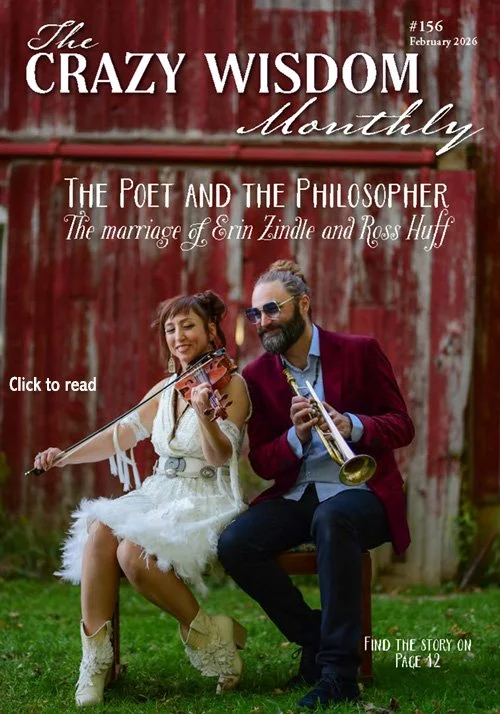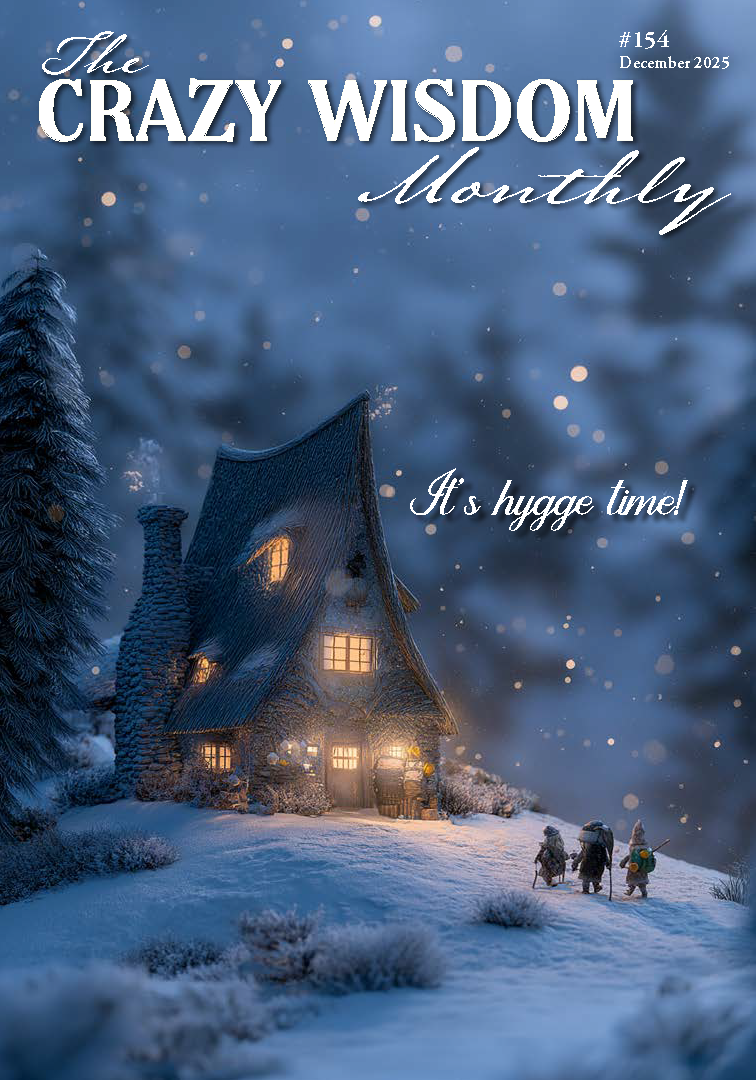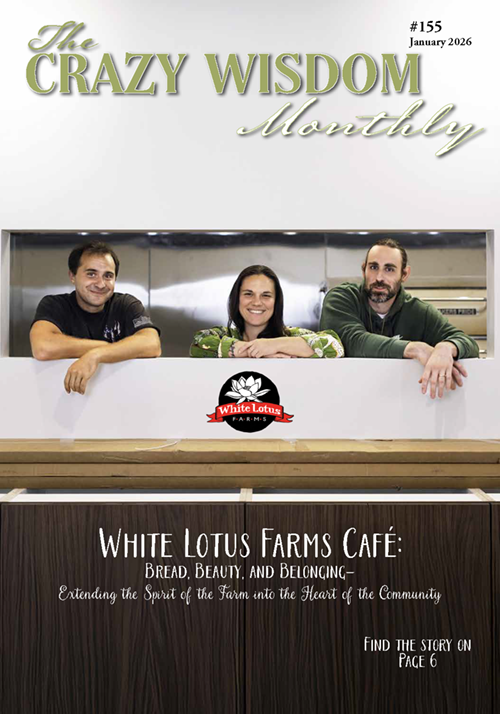By Julie Mariouw
The effects of writing are cumulative: what you write today may not tell you yet about yourself as a whole, but taken together with hundreds of other bits of writing, this piece of writing will eventually present you with a picture of yourself, and solutions to many of your problems. And sharing your writing with others only intensifies all of these results. How does writing do this?
According to Robert and Michelle Colt, certified master practitioners and coaches in Neuro-Linguistic Programming, “When you write you use several modalities at once: visual — you see what’s on the page, and you also see the events you are writing about in your mind; auditory — you hear yourself talking to yourself in your head, and you can actually amplify that by speaking out loud; and kinesthetic — you feel the pen, the paper, the whole physical experience of writing. That alone — using all three modalities —makes writing very, very powerful … One of the wonderful things is that writing opens you up to new learnings, new neural plasticity. Your brain does have the ability to learn, and as you write, you create new neural pathways. You are literally moving your brain. you are breaking old neural habits and creating new ones.” (from Writing Down Your Soul by Janet Conner, pp. 63-66).
“I have learned that when I write I can never be sure of what’s going to go down on the paper. At first this feeling frightened me; I felt as if I were jumping down a water slide and I wasn’t so sure I wanted to go swimming. But out of necessity I became brave, and so I wrote day after day, not knowing where it would lead me.”
The kind of writing that I am talking about here is not what we have all traditionally learned in school; it is instead writing without planning ahead, writing quickly, and writing without concern for spelling or grammar. As Genevieve Chandler, PhD, states in her scientific study of writing —An Evaluation of College and Low-Income Youth Writing Together: Self-Discovery and Cultural Connection —“Historically, the act of writing has been focused on the outcome, such as a book or paper, a poem or letter … Only recently has the writing process been identified as a potential agent of health … Several studies have shown that writing focused on trauma over a prescribed period of time resulted in increased immune function, higher hepatitis B antibodies lower blood pressure, and less absenteeism.” (pp. 255-267)
I have learned that when I write I can never be sure of what’s going to go down on the paper. At first this feeling frightened me; I felt as if I were jumping down a water slide and I wasn’t so sure I wanted to go swimming. But out of necessity I became brave, and so I wrote day after day, not knowing where it would lead me. At first, I did not read what I had written, I was too afraid it might stop me from continuing to write; but gradually I lost my fear of self-discovery and I began to go through some of my old notebooks, highlighter in hand. I would highlight not what my brain told me was important, but what my intuition was guiding me toward. It was using this method that I came across mostly-formed poems in my writing. The poems were rough — they needed editing — but they were unmistakably there, and so I worked with them, eventually submitting some of them for publication, and three were eventually published.
David Aberbach, in Surviving Trauma: Loss, Literature, and Psychoanalysis, states that: “Creativity, more often than not is spurred by painful loss and unresolved or thwarted grief.” And in his study of the writing done by survivors of the Holocaust and of post-traumatic stress disorder, Aberbach finds that writing is a significant way “to master trauma in all its horror and overcome it, to complete the work of mourning.” It has certainly been my experience that the process of writing softens my difficult emotions, and thereby promotes healing. This process happens without my awareness; in fact, if I attempt to make it happen, it will not. If I instead let go of any sort of preconceived notion of what my writing should be like, and simply put the words down on the page, I am forever surprised by the outcome — anger lessens, grief surfaces, and forgiveness seems to naturally follow. It is usually later, after I have worked with what I have written, and reflected upon it, that I begin to understand the healing that has actually happened within me.
“but gradually I lost my fear of self-discovery…”
And writing in a group seems only to intensify these healing effects. As Pat Schneider states in Writing Alone and with Others (referring to her experience leading writing workshops): “Writing together is an experience entirely unlike any that I ever had in elementary or high school, in college or graduate school … I don’t know how to express the almost ecstatic experience that rather frequently happens when people write together and affirm one another’s new work.”
I have experienced this in my writing workshops: participants are not often even aware of the healing that they are experiencing while sharing their writing with the group, but we, as members, witness the powerful emotions that sometimes surface, and sense the cathartic effect that this has on the writer sharing the work. I, as the workshop facilitator, can see very clearly that whatever is happening within the writer at that moment, is a piece of a larger structure of healing that will continue to grow if the writer just keeps participating in the process. And it is the witnessing of this process that seems to pull the whole thing together. As members of the workshop, we quietly listen and support, only offering feedback on what we experienced as strong and effective in the work. And because we are focusing on the writing rather than on the writer, the writer has some distance from her/his work, and is therefore better able to express and process difficult emotion. And, on top of all this, we end up with some stunning creative writing!
Julie Mariouw has a B.A. in English from the University of Michigan, and studied teaching at Eastern Michigan University. She has taught in the Ann Arbor Public Schools and currently runs a journal workshop in Ann Arbor. She runs Wellspring Writing Workshops, L.L.C, through which she offers creative writing workshops in the Ann Arbor area, including Crazy Wisdom. Visit her website wellspringwritingworkshops.com or contact her at julie@wellspringwritingworkshops.com for more information.



































































































































































































The effects of writing are cumulative: what you write today may not tell you yet about yourself as a whole, but taken together with hundreds of other bits of writing, this piece of writing will eventually present you with a picture of yourself, and solutions to many of your problems. And sharing your writing with others only intensifies all of these results. How does writing do this?